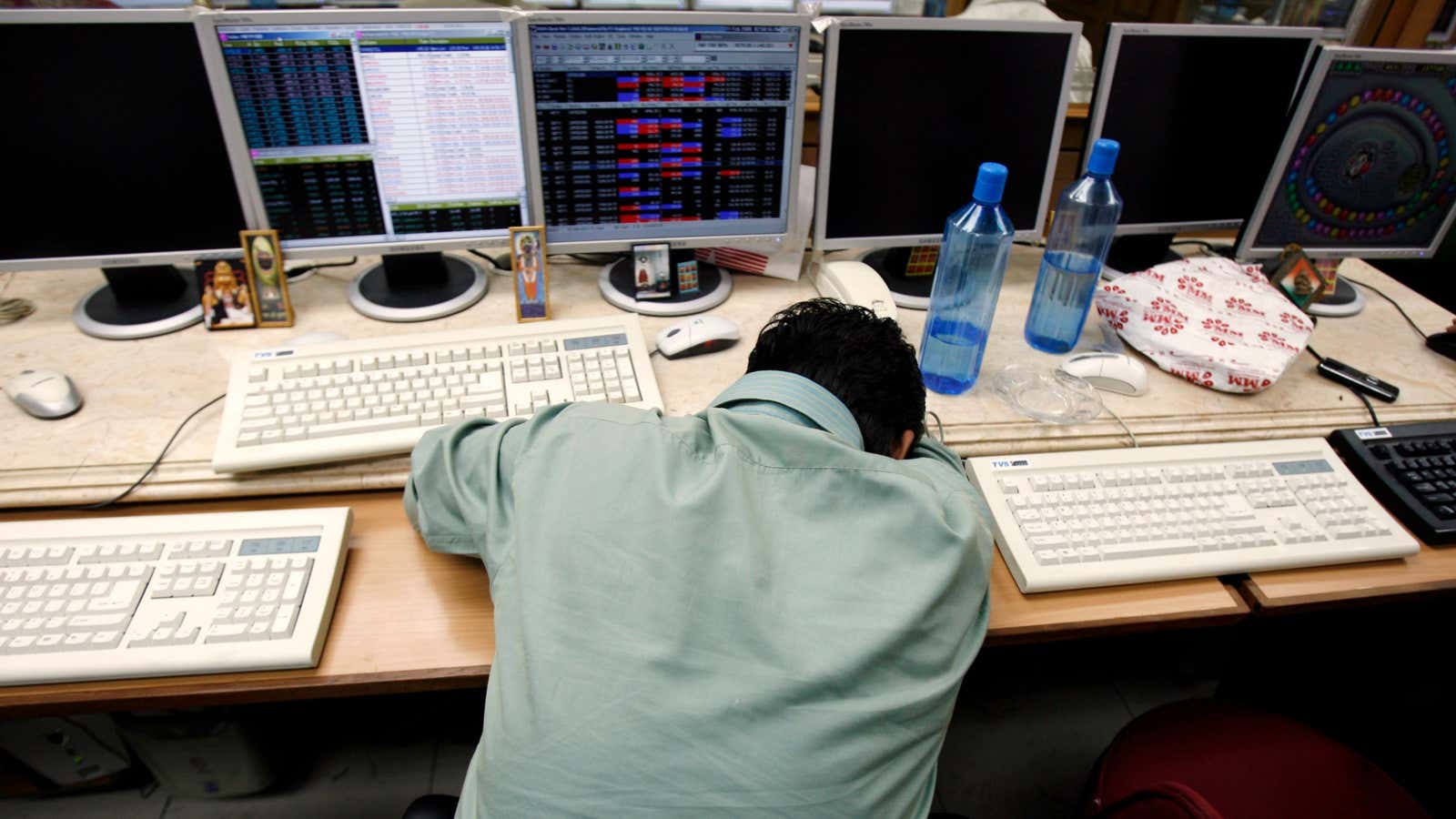Coffee may be the workplace standard for staying alert, but it has its tradeoffs: it raises the heart rate, increases blood pressure, and inflates stress. Caffeine makes it harder to fall asleep at night, which is the last thing most of us need—one in three US workers, or 40.6 million people, aren’t getting enough sleep. Fatigue is also a growing problem in the workplace. Poor sleep paired with longer hours means that tired workers have less self control and are more hostile—hardly a recipe for productivity. So how do you stay awake without that cup of joe? Here’s our complete guide to staying alert at work, without caffeine:
Get some exercise
Thirty seconds of blood-pumping exercise can give you the same mental boost as an espresso, because of the link between aerobic activity and cognition. A study also found that eating breakfast and working out improved mood and mental alertness later in the day (compared to various combinations of skipping food and exercise), and that morning exercise banished post-breakfast sluggishness.
Keep it cool
The average room temperature is around 70°F, but lowering this just by a couple of degrees can keep workers awake. Cooler air has been found to increase levels of an enzyme that correlates with higher mental alertness, and make workers slightly uncomfortable, which keeps them from getting drowsy. When people are warmer, they can feel grumpier, be less motivated to work hard, and show a decrease in job performance.
Turn up the lights
A study of college students taking night classes found that exposure to bright light boosts alertness and reduces sleepiness. Depending on the time of day, the effects were visible after about 30 minutes to an hour. Another study found that LED lighting is better than fluorescent lighting for beating fatigue, since it leads to clearer vision, faster response times, and improved memory.
… or try blue lights
A study published in October found that a one-hour dose of blue light from LEDs had a similar effect to 240mg of caffeine (roughly the equivalent of a tall Starbucks coffee) on decision-making abilities and reaction times. Participants exposed to blue light responded to tests more accurately and were better at dealing with distractions than the caffeinated group. (Curiously, companies market blue-light devices as helping people sleep—some specialists say they could have the opposite effect.)
Take in the view
Natural daylight increases workers’ productivity and helps them sleep better that night, which in turn makes workers more productive. Employees who didn’t have windows reported worse sleep overall and decreased daytime functioning. In another study, call center workers who had window views processed calls up to 12% faster, performed 10-25% better on mental function tests, and experienced less fatigue in general.
Pump up the music
Listening to uplifting music boosts mental alertness. A study this year found that participants’ test responses were more accurate when they were listening to the first movement of Vivaldi’s “The Four Seasons.” Listening to slower music—in this case, Vivaldi’s “Autumn movement”—resulted in a decrease in mental capacity.
Take a big whiff
Spices and scents can be like smelling salts for the office. Peppermint and cinnamon increase alertness and kill fatigue, frustration and anxiety. Smelling rosemary oil has been shown to sharpen concentration, speed and accuracy. Japanese researchers discovered that a whiff of citrus can improve focus and precision, worker satisfaction, and boost cognitive performance. But stay away from scents that help you relax like lavender, ylang ylang, and chamomile, which can induce drowsiness. Try keeping a spice jar, scent diffuser or essential oils on your desk—or get your office to pipe the scent of lemon through its ventilation system, like this Japanese company has been doing for years.
Munch on the right snack
Eating high-protein foods like yogurt or cottage cheese boosts mental alertness. During digestion, the body releases the amino acid tyrosine, which has been found to fight fatigue and improve mental function. Antioxidant-rich nuts—particularly walnuts—have also been found to improve memory and cognitive function. Foods high in boron—a mineral linked to perception, short-term memory, and mental alertness —such as apples, peanut butter, grapes and orange juice, make for good brain snacks.
If all else fails, take a nap
Taking a 90-minute afternoon snooze boosts your brain’s ability to remember information and perform at work. Researchers liken napping to clearing out a full inbox to make way for new emails to arrive. It doesn’t matter if you’re short on time—even sitting quietly, for 30 minutes after lunch improves alertness, short-term memory and the accuracy of people’s reactions. Google famously has EnergyPod nap chairs in its offices, and other companies including Procter & Gamble and the Huffington Post are following suit. In case your workplace isn’t, here’s the Quartz complete guide on how to catch 40 winks at the office. And if all else really fails, check out Quartz’s complete guide to coffee at work.




